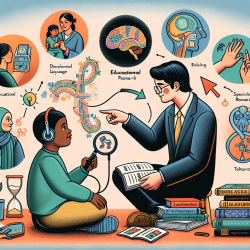Introduction
In a groundbreaking study, researchers have delved into the effects of increased prescribing of psychotropic drugs versus school-based services for children with disabilities on juvenile violence. The findings, published in the Journal of Developmental and Life-Course Criminology, reveal significant implications for practitioners working with children, particularly in educational settings. This blog explores the key takeaways from the study and how practitioners can leverage these insights to improve outcomes for children.
The Study at a Glance
The study utilized state-level panel data from 1990 to 2014 to analyze the impact of two self-control-boosting strategies: psychotropic drug prescriptions and school-based services for children with learning disabilities. The research focused on how these strategies correlate with juvenile violence, considering various covariates such as time trends and child poverty rates.
Key Findings
- School-Based Services: The study found a strong association between increased school-based services for children with disabilities and declines in all types of juvenile violence. This suggests that enhancing these services could be a powerful tool in violence prevention.
- Psychotropic Drugs: In contrast, the effects of psychotropic drug prescribing were inconsistent or insignificant, indicating that this strategy might not be as effective in reducing juvenile violence.
- Child Poverty: A reduction in child poverty was consistently linked to decreases in juvenile violence, highlighting the importance of addressing socio-economic factors in violence prevention strategies.
Implications for Practitioners
For practitioners, these findings underscore the importance of prioritizing school-based services for children with disabilities. Here are some actionable steps to consider:
- Advocate for Enhanced Services: Work with school administrators to advocate for increased funding and resources for school-based services under the Individuals with Disabilities Education Improvement Act (IDEA).
- Collaborate with Educators: Engage in interdisciplinary collaborations with educators to ensure that children with learning disabilities receive comprehensive support that addresses both academic and behavioral needs.
- Focus on Holistic Approaches: Consider the broader socio-economic context of the children you work with, and advocate for policies that address child poverty as part of a holistic approach to reducing juvenile violence.
Encouraging Further Research
While the study provides valuable insights, it also highlights the need for further research, particularly at the individual level, to better understand the mechanisms through which school-based services impact juvenile violence. Practitioners are encouraged to contribute to this research by documenting outcomes and sharing data from their own practice settings.
To read the original research paper, please follow this link: Increased Prescribing of Psychotropic Drugs or School-Based Services for Children with Disabilities? Associations of These Self-control-Boosting Strategies with Juvenile Violence at the State Level.










